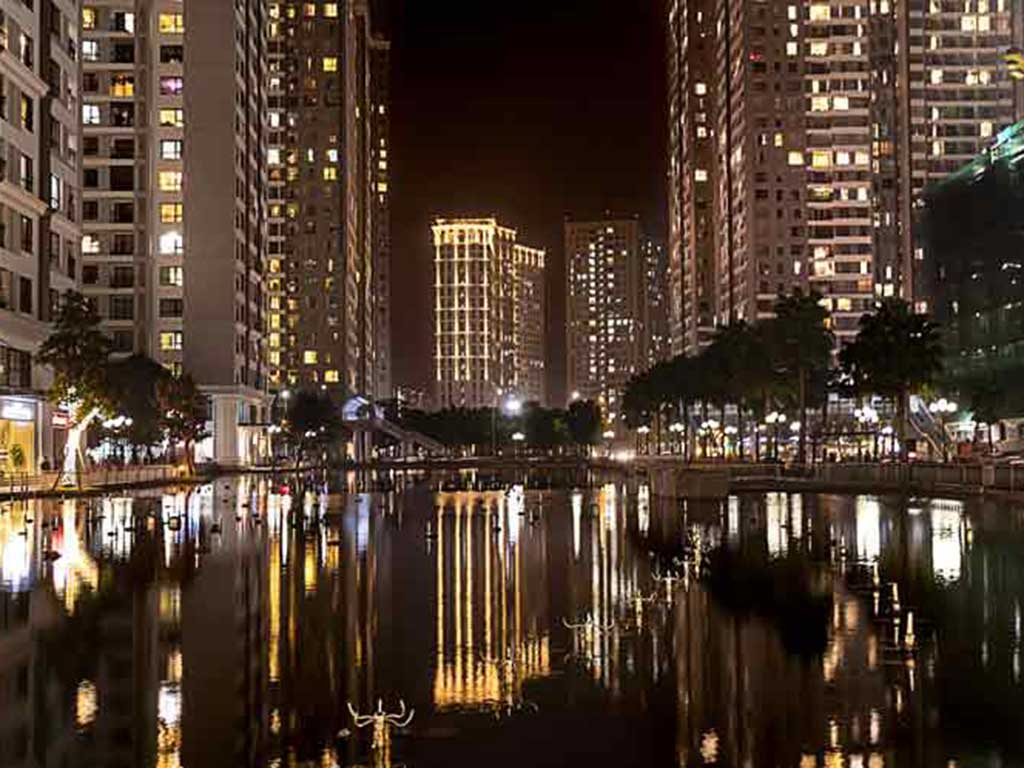Both «round» anniversaries have prompted a flurry of celebrations in the ancient Vietnamese capital, Hanoi, which is about to celebrate the 70th anniversary of its liberation from French colonial rule.
It was on 10 October 1954 that the capture of the city by the Vietnam People’s Army was celebrated with a grand military parade. The first units of the Vietnam People’s Army had been advancing two days earlier from various directions and had begun to dislodge the European occupiers on the 9th.
Historical accounts state that on Liberation Day, at 15:10 (local time) in the courtyard of the Flag Tower, the first ceremony to raise the national flag was held, where the commander of the 308th Division, General Vuong Thua Vu, read President Ho Chi Minh’s appeal to the people of Hanoi.
For the past eight years, wrote the pro-independence leader, the government had to evacuate the capital to fight a war of resistance for independence, and although far apart, «the heart of the government has always been with the people of Hanoi».
«Thanks to the unity of the people and the bravery of the army, peace has prevailed and the government has returned to the capital. We are now reunited as one family and our joy is immeasurable,» Ho Chi Minh further noted.
For the founder of the Communist Party and the Democratic Republic of Vietnam, the most important thing after the liberation of the city was to maintain order and security.
«If order and security are maintained, the people of the capital will be able to live in peace and happiness,» Ho Chi Minh wrote in an article published by the newspaper Nhan Dan, in which he stressed that this task, although the responsibility of the police and the army, should «depend even more on the initiative and strength of the people».
Other urgent tasks were related to stabilising life, restoring and developing production, as well as ensuring food and the daily supply of electricity and water to the people.
It is worth remembering that at the time of its liberation, Hanoi had less than 440,000 inhabitants, there were about 1,500 mainly handicraft production establishments throughout the city employing about 5,000 people, and agriculture was very backward. Trade and services were hardly prominent in the city’s economy.
RESIZING A CITY
With its complete liberation, Hanoi was resized to become the political-administrative, economic and cultural centre of the country and a vital support for the construction and defence of the North, the liberation of the South and the reunification of the nation in 1975.
It is true that defeating the French occupier in the North and the American troops and the puppet government in Saigon in the South was not enough, because once the war was over, the United States and the West imposed a blockade and economic embargo on Vietnam for almost 20 years.
In addition, the complex regional and international situation also created a number of disadvantages for the Indochinese nation, which suffered from shortages of food and basic necessities, and around three-quarters of its population fell below the poverty line.
It was the reform process (Doi Moi) undertaken and led by the Communist Party from 1986 onwards that brought about a gradual turnaround in the situation of the country in general and Hanoi in particular.
Today, the Vietnamese capital, with a population of around 10 million people, boasts a gross domestic product (GDP) growth rate of 6.27 percent in 2023, exceeding the national average of 5.00 percent.
In 2021, the city’s Party Committee issued the so-called Programme Number Eight, with 27 goals on the development of the social security system, the improvement of social welfare and the quality of life of the local population, of which it has already achieved 14 and expects to achieve all of them by 2025.
In fact, in 2022 the city’s unemployment rate was only 2.23 per cent, when the target set for 2025 was to keep it below three percentage points, the rate of poor households in the city was only 0.095 per cent, and the annual per capita income is around 6,100 dollars.
On the other hand, Hanoi now ranks 97th on the list of the world’s smartest cities, improving three places from 2023, as well as its ranking among the most liveable cities, dropping to 144th from 160th in 2022.
THE CITY’S COURSE FOR PEACE
In addition to the 70th anniversary of its liberation, Hanoi is celebrating five years since it was proclaimed a City for Peace by Unesco in 2024, a title which, together with that of Creative City awarded by the organisation itself, highlights the efforts of the Vietnamese capital to reinvent itself year after year.
Where Hanoi is heading is defined in the Capital’s Master Plan until 2045, with a vision until 2065, which aims to make it the hub and engine of the development of the Red River Delta and the northern region of the country, and a major economic and financial centre and growth pole with a leading role in the national economy and regional influence.
The project also aims to make it a civilised, modern, green and intelligent city where the cultural elite of the country and the world converge, and a leading centre for research, innovation, application and transfer of new science and technology.
All of this is underpinned by green development models and the circular and digital economy, and supported by the new Capital Law (as amended), which was passed last June by the National Assembly and will come into force on 1 January 2025.
The new legislation expands the powers of the Council and the People’s Committee to implement a range of solutions in various fields, which will undoubtedly favour the development of tourism, culture, education, health, science and technology, innovation and environmental protection.
This, of course, without losing its essence. That which, according to the «Love letter to my nation’s capital» written by Nguyen My Ha and published in the English-language Vietnam News, makes those who come here for whatever reason want to stay «because of the warmth and small acts of kindness that make the city truly special».




